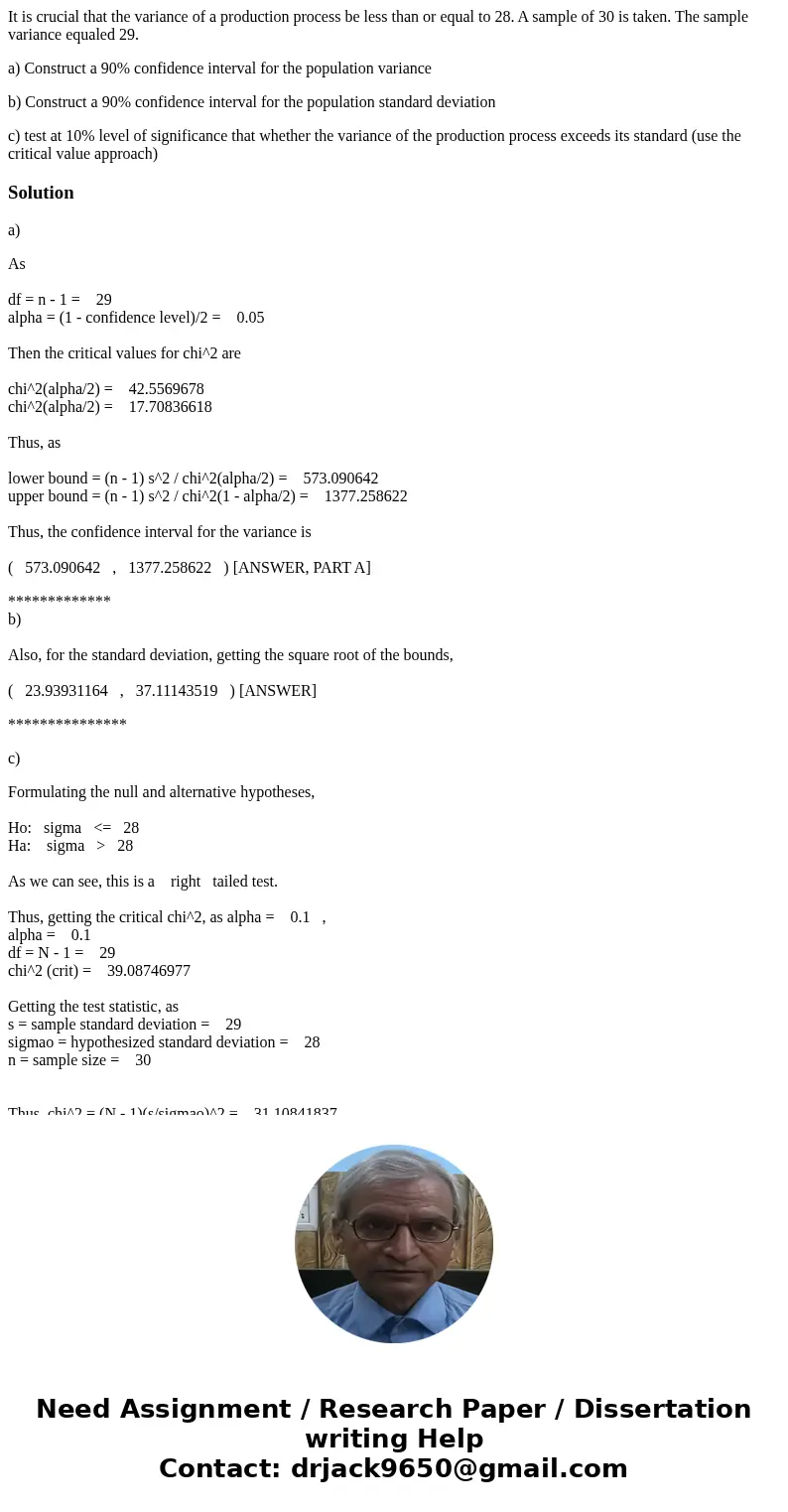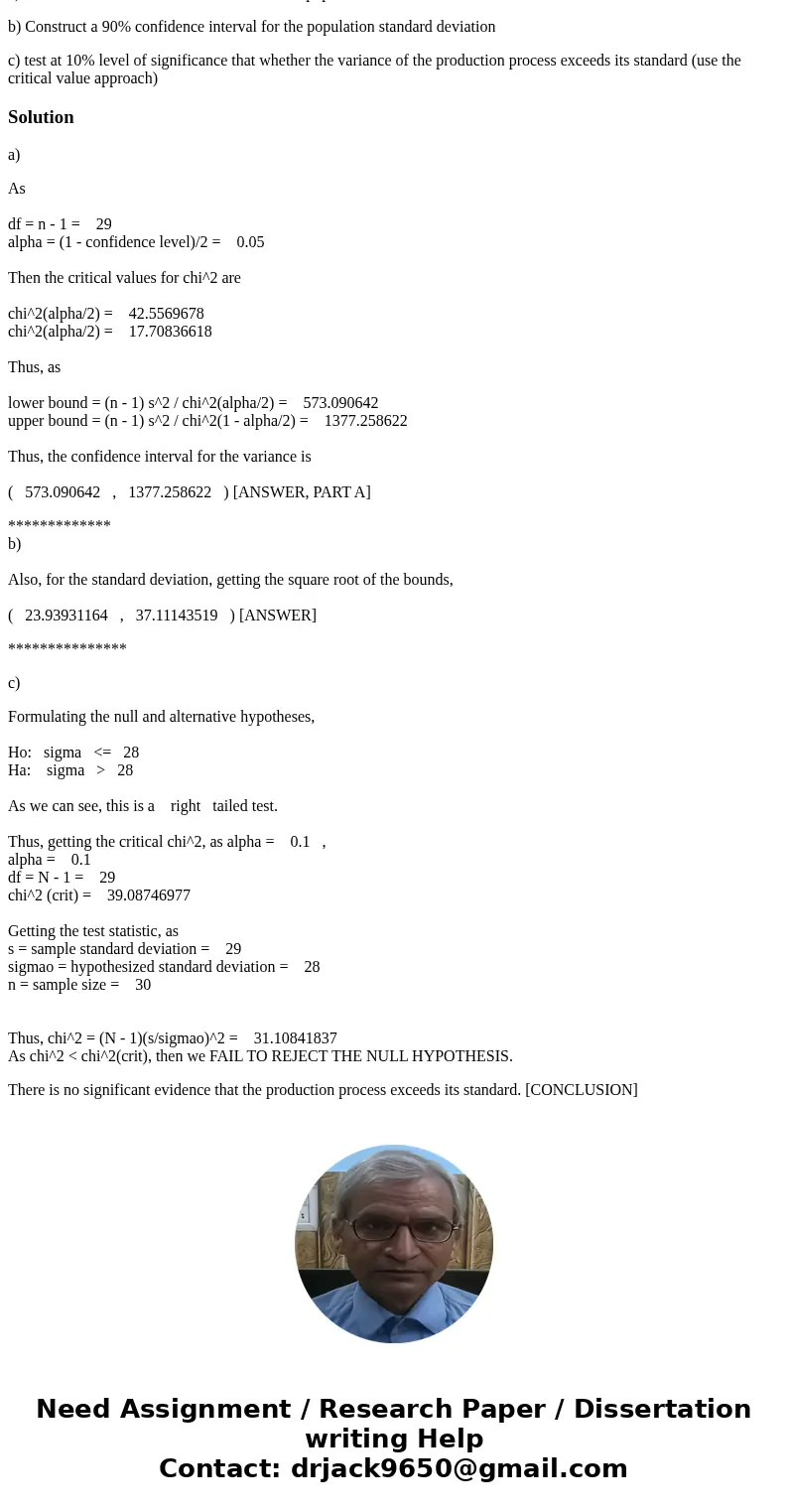It is crucial that the variance of a production process be l
It is crucial that the variance of a production process be less than or equal to 28. A sample of 30 is taken. The sample variance equaled 29.
a) Construct a 90% confidence interval for the population variance
b) Construct a 90% confidence interval for the population standard deviation
c) test at 10% level of significance that whether the variance of the production process exceeds its standard (use the critical value approach)
Solution
a)
As
df = n - 1 = 29
alpha = (1 - confidence level)/2 = 0.05
Then the critical values for chi^2 are
chi^2(alpha/2) = 42.5569678
chi^2(alpha/2) = 17.70836618
Thus, as
lower bound = (n - 1) s^2 / chi^2(alpha/2) = 573.090642
upper bound = (n - 1) s^2 / chi^2(1 - alpha/2) = 1377.258622
Thus, the confidence interval for the variance is
( 573.090642 , 1377.258622 ) [ANSWER, PART A]
*************
b)
Also, for the standard deviation, getting the square root of the bounds,
( 23.93931164 , 37.11143519 ) [ANSWER]
***************
c)
Formulating the null and alternative hypotheses,
Ho: sigma <= 28
Ha: sigma > 28
As we can see, this is a right tailed test.
Thus, getting the critical chi^2, as alpha = 0.1 ,
alpha = 0.1
df = N - 1 = 29
chi^2 (crit) = 39.08746977
Getting the test statistic, as
s = sample standard deviation = 29
sigmao = hypothesized standard deviation = 28
n = sample size = 30
Thus, chi^2 = (N - 1)(s/sigmao)^2 = 31.10841837
As chi^2 < chi^2(crit), then we FAIL TO REJECT THE NULL HYPOTHESIS.
There is no significant evidence that the production process exceeds its standard. [CONCLUSION]


 Homework Sourse
Homework Sourse